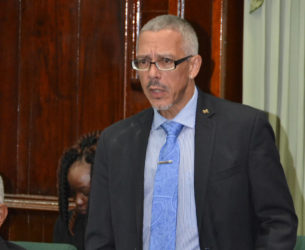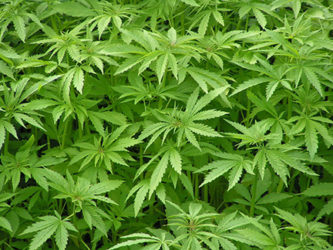The issue of pressing hemp a variety of the Cannabis sativa plant, that is grown primarily for its fibre and seeds into service as a legitimate crop and a major money-earner for Caribbean economies has been placed on the regional front burner once again with the recent pronouncement by Jamaican Prime Minister Andrew Holness that the plant can be used in the production of environmentally friendly containers in Jamaica.
The Jamaican government is currently grappling with the challenge of staving off the environmental consequences associated with the proliferation of non-biodegradable containers and recently a resolution was passed in the island’s Upper House calling for government intervention to effect a ban on the importation of plastic bags below 50-gallon capacity and on all finished goods made from Styrofoam. The resolution also advocates curtailing the production of those items in Jamaica unless they include an enzyme capable of rendering them biodegradable.
While Jamaica appears to see the properties in hemp as perhaps part of its solution to the environmental dangers of increased use and disposal of plastic bags and Styrofoam containers, there exists a measure of apprehension in the region regarding its aggressive cultivation and use, arising out of the fact that it belongs to the cannabis family. Hemp reportedly belongs to what is believed to be the non-psychoactive varieties of the cannabis plant and while hemp and marijuana are both part of the same cannabis species, they are genetically different and are distinguished by use, chemical make-up, and cultivation methods.


While the use of hemp is being debated in Jamaica as a property that could replace plastic containers, here in Guyana, discourse on the economic potential of hemp has also secured a measure of attention in both public and official circles.
The advent of the Guyana Hemp Association (GHA) may not, up until now, have succeeded in securing the hoped-for level of traction in official circles. But that has done nothing to reduce the intensity of the lobby driven by GHA Head Turhane Doerga on the grounds that the production of hemp, which serves as a raw material in the manufacture of a range of items including clothing and upholstery, can make a significant contribution to the reduction of poverty in Guyana.
Earlier this year Business Minister Dominic Gaskin was quoted in a section of the local media as making pronouncements that point to a receptivity to the initiative of GHA that focuses on the employment-generating potential of hemp. Doerga is on record as saying he is confident that local production of hemp can lead to the creation of at least 5,000 jobs. Other officials of the association have alluded to the potential of the plant to see the creation of a number of new industries given its potential application as raw material for a range of finished products.

Advocates of the economic potential of hemp, including its capacity to add value to the agricultural sector in both developed and developing countries have had to invest much time and effort in fending off arguments that continually associate the plant with marijuana. However, arguments for bringing in the commodity from the cold, so to speak are gaining traction on account of its increasing use in Africa and the emergence of a North American market believed to be worth in excess of $300 million in annual retail sales and continued rising demand.
Here in Guyana there has been muted discussion on the potential viability of the introduction of hemp as a major agricultural crop in order to seek to compensate for the market-related challenges facing the rice industry. There is no real evidence that this particular discourse has, up until now, been unable to secure any significant traction with either rice farmers or with the authorities. The prevailing feeling among its adherents is that in an environment where searching for viable options has become a national pastime, the rise of hemp cannot, in the longer term, be ruled out.





